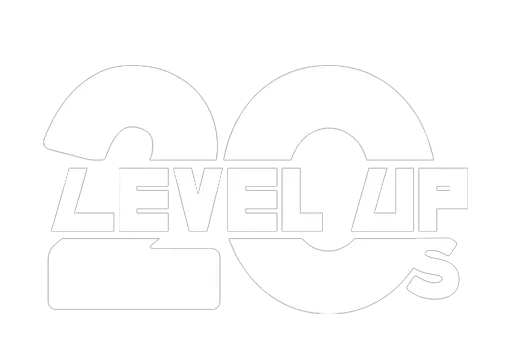Career Advice for 20-Year-Olds: Navigating Early Professional Choices

As an affiliate, we may earn a commission from qualifying purchases. We get commissions for purchases made through links on this website from Amazon and other third parties.
Embarking on a career journey in your twenties can be an exhilarating and daunting experience. You’re standing at the threshold of numerous opportunities, but the choices you make now can significantly shape your professional life. It’s essential to approach this period with thoughtfulness and intention. Career advice for individuals in this age group focuses on self-assessment, exploring different educational and experiential avenues, and building a robust professional network that aligns with one’s career aspirations.
The world of work is constantly evolving, and as a 20-year-old, staying informed and adaptable is key to your career development. Crafting a compelling application, whether for further education or job opportunities, showcases your skills and intentions. At the same time, understanding your strengths and interests can guide you towards fulfilling career paths. Seeking support to navigate the challenges you may face is also vital, as is constructing a professional network—which often starts with leveraging connections you might not even realise you have.
Key Takeaways
- Align career actions with self-awareness and educational experiences.
- Create strong applications and networks to open professional doors.
- Adapt and seek support to overcome career development challenges.
Understanding Yourself
To truly excel in your career, it’s essential to have a deep understanding of who you are. This self-awareness includes recognising your interests, strengths, values, and passions. It will help you pinpoint a career path that aligns with every aspect of your personality.
Assessing Your Interests and Strengths
Interests:
- Reflect on activities that engage and excite you.
- Utilise psychometric tests to identify areas that match your interest and abilities.
Strengths:
- Acknowledge both your soft and hard skills.
- Seek feedback from peers or mentors to understand your capabilities better.
Identifying Your Values and Passions
Values:
- Consider what matters to you most; is it work-life balance, company culture, or maybe ethical practices?
- List your top 5 values and align them with potential career choices.
Passions:
- Understand that passion often comes from feeling competent and making a difference.
- Remember, a passion can develop over time, so keep an open mind and be patient with yourself.
Exploring Career Possibilities
- Research industries and roles that resonate with your interests and personality.
- Network with professionals or try internships to gain insights into various fields.
- Use this exploration to refine your understanding of where your passions and skills could be best utilised.
By taking time to deeply analyse these facets of yourself, you’re more likely to find a career path that truly suits you and brings satisfaction as well as success.
Educational Pathways
When it comes to navigating your future, understanding the educational pathways available to you is critical for aligning your studies with your dream career. Whether you’re considering university, aiming for a graduate scheme, or exploring vocational training, each option can significantly shape your career path.
Deciding If University Is the Right Choice
University isn’t the only route to a successful career, but it’s a traditional path that can open doors to various professions. Ensure you’re choosing a course that aligns with your career aspirations. Degrees in demand might enhance your employability, but personal interest and career goals should be weighted heavily in your decision. Remember, university can be costly, and it’s worth weighing these costs against potential future earnings in your chosen field.
Researching Graduate Schemes
Graduate schemes are structured training programmes offered by employers to cultivate new talent. They often lead to a permanent role within the company upon completion. Such programmes are competitive and typically require a degree. Investigate sectors and companies that appeal to you and provide clear progression towards your desired role. It’s crucial to start early, as applications for these schemes may open up to a year in advance.
Considering Vocational Training
Vocational training courses can provide practical skills and qualifications geared directly towards a specific job or industry. These alternatives to academic higher education are particularly valuable if you are keen on entering a career path that favours hands-on experience. Vocational qualifications can be acquired through further education colleges or apprenticeships, offering a direct route to employment, sometimes with the added benefit of earning while you learn.
Gaining Experience
When you’re in your twenties, gaining experience is a strategic move towards building a successful career. Work experience, whether through internships, volunteering, or entry-level jobs, positions you effectively for future opportunities.
The Value of Internships and Work Experience
Internships offer you a direct insight into your chosen industry, allowing you to apply academic theories in real-world settings. Work experience is not only about enhancing your CV; it’s also about building a professional network and understanding workplace dynamics. Many interns find that these experiences can lead to future employment opportunities or at least provide a solid reference from employers within the field. For example, placements coordinated via career education programmes can be particularly beneficial.
- Proactive steps to take:
- Research companies offering internships in your desired field.
- Approach your university’s career services for advice and support in securing a placement.
Volunteering Opportunities
Volunteering can enrich your understanding of societal needs, whilst simultaneously developing your skill set. This altruistic work often provides flexibility that can accommodate your ongoing studies or other commitments. Engaging in volunteer work demonstrates initiative and a strong work ethic, traits highly valued by prospective employers. Moreover, volunteering can sometimes uncover unexpected career paths or lead to significant networking chances.
- Top fields for volunteering:
- Charities
- Community projects
- Non-governmental organisations (NGOs)
Entry-Level Jobs to Consider
Entry-level jobs are a practical option to start accumulating relevant job experience in your field. They allow you to gain a foothold in the industry, learning the ropes from a foundational level. Start by seeking positions that offer on-the-job training and opportunities for growth, which can aid in career development. Be sure not to overlook the potential of these roles; even those apparently unconnected to your ultimate career goals can provide valuable transferable skills.
- Sectors with promising entry-level positions:
- Information Technology
- Marketing
- Financial Services
- Healthcare
By embracing internships, volunteering, and entry-level work, you’re not just filling time; you’re strategically building a portfolio of experience that can set you apart in the job market.
Crafting Your Application
When applying for a job, your application is your first impression. It must communicate your skills, experience, and potential with clarity and impact. Three key components to master are your CV, cover letter, and preparation for interviews.
Crafting a CV That Stands Out
Your CV is a snapshot of your professional story. Tailor your CV to each job application by highlighting relevant experience and skills that align with the job description. Use a clear structure with headings such as ‘Work Experience’, ‘Education’, and ‘Skills’. For each role you’ve had, include bulleted lists that start with strong action verbs like “coordinated”, “developed”, or “managed”.
- Personal Statement: Write a concise paragraph at the start of your CV that summarises your career goals and what you offer to an employer.
- Key Achievements: Instead of simply listing duties, focus on your achievements, backing them up with quantifiable data where possible, such as “Increased sales by 20% over six months”.
Writing Effective Cover Letters
A cover letter serves as a personal introduction and a pitch for your CV. It should address the hiring manager directly and explain why you are the ideal candidate for the position. Your writing style should be formal and professional, yet approachable. Begin with a strong opening paragraph that captures attention, and use subsequent paragraphs to draw connections between your experience and the job requirements.
- Research: Show that you’ve researched the company and understand its challenges. Mention how your skills can help address those challenges.
- Call to Action: Conclude with a respectful call to action, such as “I look forward to discussing my application in further detail.”
Preparing for Job Interviews
Preparation is crucial for a successful job interview. Research the company extensively and understand the role you’re interviewing for. Prepare answers for common interview questions and think about specific examples from your experience that demonstrate your suitability for the role.
- Mock Interviews: Practise with friends or family or in front of a mirror to refine your answers and build confidence.
- Questions: Prepare a list of questions for the interviewer that show your interest in the role and the company.
Building a Professional Network
In today’s connected world, building a professional network is a critical step in shaping your career. Utilise resources like the National Careers Service and platforms such as LinkedIn to expand your contacts and gain insights from experienced industry professionals.
Utilising the National Careers Service
The National Careers Service offers a wealth of resources to support your career development journey. You’re encouraged to visit their website and click on the Contact us section to get personalised advice and guidance. Their specialists can help you identify networking events and introduce you to professional groups within your field of interest.
Leveraging Social Media for Networking
Social media isn’t just for staying in touch with friends; it’s a powerful tool for career networking. Create a LinkedIn profile to showcase your skills and accomplishments. Engage with content relevant to your field and participate in industry groups to get noticed by potential employers and mentors.
Connecting With Industry Professionals
Attending networking events and joining professional associations are excellent ways to meet industry professionals. Research events related to your career interests and prepare business cards or a digital contact card to efficiently exchange details. Making authentic connections often leads to valuable mentorships and job opportunities. Remember, a conversation could be the start of a pivotal professional relationship.
Exploring Specific Career Paths
When considering your future, it’s vital to look at specific career paths that align with your skills and interests. From traditional roles to more creative pursuits, there’s a range of options that can offer a fulfilling career trajectory.
Traditional Professions
Teacher: As a teacher, you have the opportunity to educate the next generation in a variety of subjects. You’ll need a strong grasp of your teaching area and excellent communication skills. Teachers are expected to have a formal university education followed by a teaching qualification, such as a Postgraduate Certificate in Education (PGCE).
Police Officer: If you’re interested in serving your community, becoming a police officer might be your calling. It involves protecting the public and enforcing the law. Police forces in the UK offer several entry routes, including apprenticeship programmes, university degrees in professional policing, or by direct application if you possess a degree in a different field.
Creative and Artistic Careers
Author: If your creativity overflows into words, a career as an author could be suitable. This role demands dedication, as well as the ability to craft engaging narratives or informative content. Authors work on a freelance basis and success can vary widely. Building a career in writing often starts with smaller projects and networking to eventually secure a publisher or self-publish.
Marketing Assistant: Jump into the creative side of business as a marketing assistant, where you’ll support campaigns, manage social media, and interact with clients. Creativity and commercial awareness go hand in hand in this role. Most marketing assistants start with a degree or an apprenticeship in a relevant field.
Technical and Skilled Roles
Electrician: Entering a trade like an electrician requires a strong technical knowledge and hands-on skills. Electricians must complete vocational training and, in the UK, achieve an NVQ or SVQ.
Electrical Technician: Electrical technicians work on a variety of electrical systems, performing installations and repairs. Technical skills and attention to detail are crucial. You’ll likely need a Level 3 qualification for entry-level positions.
Veterinary Assistant: If you love animals and want a career caring for them, consider becoming a veterinary assistant. This role provides support to veterinarians and requires both emotional resilience and an aptitude for science. A relevant Level 2 qualification is commonly the minimum requirement.
In all these careers, from author to electrician, your success hinges on your commitment to your chosen path and your willingness to stay current with industry standards and qualifications. Whether your strengths lie in creativity, service to others, or technical expertise, make sure to research and gain the necessary experience and credentials for your desired role.
Challenges and Support
In your career journey during your twenties, you are likely to encounter several challenges. It’s essential to recognise the avenues of support that can help overcome such obstacles, whether they involve a career change, a need for disability-related adjustments, or redundancy.
Navigating Career Changes
When considering a career change, it’s crucial to assess your current job satisfaction and explore what truly motivates you. Seek out embedded career guidance to help determine the skills that can transfer to new roles. Remember that changing careers is a process that involves reflection, exploration, and often, retraining.
Support for Individuals with Disabilities
If you have a disability, know that support exists to ensure equal employment opportunities. Utilise resources that provide advice on adjustments in the workplace and explore programmes that advocate for inclusivity. Awareness of your legal rights and what reasonable adjustments can be made is paramount for job satisfaction and success.
Advice for Redundancy Situations
Facing redundancy can be disheartening, but it’s also an opportunity to reflect and potentially pivot towards a more fulfilling career. Access guidance services that offer practical steps towards re-entering the job market. It’s essential to update your CV, harness your network, and perhaps consider retraining or further education.
Staying Informed and Adaptable
In a rapidly evolving job market, your success hinges on your ability to stay informed about changes in your industry and adapt your skills accordingly. This proactive approach ensures you remain competitive and can seize new opportunities as they arise.
Keeping Up With Industry Trends
To keep abreast of the latest trends in your field, subscribe to specialised publications, join professional associations, and attend industry conferences. These resources offer valuable insights into emerging technologies and market shifts that can impact your job search or career trajectory. For instance, understanding the impact of digital transformation provides an edge in roles that increasingly rely on tech-savviness.
Embracing Lifelong Learning
Lifelong learning is crucial for maintaining a relevant skill set in any profession. Explore formal education such as degree programs, or take advantage of online courses to expand your expertise. Many resources, like remote working, highlight the importance of continuous learning in adapting to new work structures and demands.
Adapting to the Future of Work
The future of work calls for a flexible approach to career planning. Familiarise yourself with the concept of portfolio careers, where you combine various part-time roles or freelance gigs, allowing for a diverse and resilient professional life. Adaptability also means being willing to pivot careers if new, unforeseen avenues of employment become more prominent.
Frequently Asked Questions
Navigating the early stages of your career can be challenging, but with the right advice and strategies, you can set a strong foundation for future success. This section aims to answer some common queries to help you shape your career path in your twenties.
What steps should I take to effectively navigate my career in my early twenties?
Begin by setting clear career goals and creating a step-by-step plan to achieve them. Seek internships or entry-level positions to gain valuable experience. Networking is crucial; build relationships with mentors and peers in your field.
Which skills are most beneficial to focus on developing at the start of one’s career?
Prioritise soft skills like communication, teamwork, and problem-solving, which are universally valued by employers. Additionally, develop digital literacy and industry-specific skills, such as data analysis or technical competencies relevant to your field.
How can I make a successful career transition in my 20s?
Research the new industry thoroughly and understand the skills required. Take up relevant courses or certifications to bridge any skill gaps. Gain experience through volunteering or part-time work in the new field before making the full switch.
What strategies can I employ to secure a good job as a young adult?
Tailor your CV and cover letter for each application to highlight how your skills align with the job requirements. Leverage job landing strategies through parental contacts and networking and maintain an active presence on professional social media platforms.
At what point should I consider specialised career advice, and where can I find it?
Consider specialised career advice if you feel uncertain about your career choices or progression. You can find quality advice through career advisors at universities, professional career services, or via online resources like industry articles and studies.
How can one balance the pursuit of career advancement with personal development in their twenties?
Strive to maintain a healthy work-life balance and set aside time for self-care and hobbies. Personal development can also be career-enhancing: attend workshops and seminars to improve your skill set and personal network.
- ✍️ LIFE PLANNER - All the success tools you need to create the life you always wanted - A5 Size (5.8 x 8.3 inch) with 228 pages of life transformation, 56 weekly, 12 monthly planning overviews & reflection, 29 journal pages, habit trackers, mind maps, out foldable vision board, morning & evening routines
- 😃 INCREASE PRODUCTIVITY AND HAPPINESS - This is a deluxe life goal planner showing you how to become the best possible version of yourself on a mental, physical & interpersonal level using the law of attraction vibration guide
- 🎯 ACHIEVE YOUR GOALS USING THE LAW OF ATTRACTION - Learn how to set big goals, be happy and manage your time well, and follow the same methods millionaires around the world use to set goals and achieve them
- 🏆 REDUCE OVERWHELM, STRESS AND FIX PROCRASTINATION - Follow a unique 8 step system that will help you bring back harmony, clarity, and peace in your life while achieving your goals.
- 💎 LUXURIOUS & TOP QUALITY- Ideal for both women and men, perfect for entrepreneurs, professionals, college students, and everyone who has a burning desire to turn dreams into reality. No questions asked money-back guarantee
- THE ULTIMATE UNDATED GOAL-SETTING PLANNER – This undated weekly planner combines effective planning tools and goal-setting frameworks to help you stay focused and productive throughout the year.
- STAY ORGANIZED, INCREASE PRODUCTIVITY & ACHIEVE YOUR GOALS – This planner will help you develop a vision for your future, set big life goals, and incorporate these goals into your daily agenda to ensure you make the most of your time.
- IMPROVE WORK-LIFE BALANCE, BUILD NEW HABITS & FEEL HAPPIER – This week and day planner is designed to help you build and support a balanced lifestyle, using a daily habit tracker and monthly check-ins.
- A5 SIZE, STICKERS & USER GUIDE – This planner organizer comes in A5 size (14 x 21cm), with an eco-leather hardcover, thick 120gsm paper, lay-flat binding, pen loop, elastic band, 3 bookmarks, pocket for notes, 3 sheets of stickers, and user guide.
- 60-DAY MONEY-BACK GUARANTEE – We will exchange or refund your life organizer planner if you aren’t satisfied with your goal planner for any reason. Reach out to us via message to refund your bullet planner.
About Us
We understand that this pivotal phase of life can be filled with excitement, confusion, and important decisions that set the course for the future. So we strive to offer the advice and insights you need to make the most of your twenties.
- How to Make Good Decisions in Your 20s: Navigating Choices for a Solid Future
- The Rise of Remote Work: Navigating Shifts in Workplace Dynamics
- Mastering the Job Interview: Strategies for Securing Your Ideal Position
- What Are Some Healthy Habits to Adopt in Your 20s for Long-Term Wellbeing?
- Balancing Passion and Practicality: How to Select the Ideal Career Path
Disclaimer
As an affiliate, we may earn a commission from qualifying purchases. We get commissions for purchases made through links on this website from Amazon and other third parties.
Check these out on Amazon











